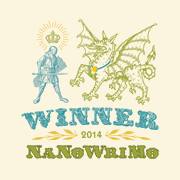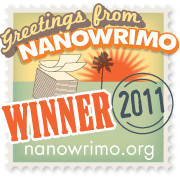 I’ve been told by both of my critique groups that I handle dialogue reasonably well. I’m not confident enough yet to just take the compliment and run with it, but I’ve thought about it a lot recently. Particularly because I’ve spent the last few days really listening to the way people talk to me (and others).
I’ve been told by both of my critique groups that I handle dialogue reasonably well. I’m not confident enough yet to just take the compliment and run with it, but I’ve thought about it a lot recently. Particularly because I’ve spent the last few days really listening to the way people talk to me (and others).
It varies a great deal but there’s something I’ve noticed that people always do. They modify or try to dampen the impact of what they’re saying by starting with something like ‘I don’t mean to be rude, but…’ or ‘I don’t want to be mean, but…’ or my favourite; ‘I’m not saying you’re *insert offensive term here* but….’ Have you ever come across this? I find it interesting that people tell you that they have no intention of offending/being rude/crass/mean/hypocritical or whatever, and then proceed to do exactly that. Does this excuse them? Do they believe that this makes it okay? Because it doesn’t. Not in the slightest.
That, however, is just how people talk. It’s very real and I’ve come across it in fictional dialogue over and over again. Those writers who are able to replicate this pattern of speech without it sounding forced or foolish are writers to be admired. It’s very well done.
Similarly, writers who are able to replicate ‘verbal tics’ as I’ve heard them called, are also pretty talented. All those people who wander around saying things like ‘y’know what I mean’ or ‘innit’ or ‘dude!’ That last one is one of mine. ^_^
Writers who can use clauses in their dialogue without slowing the pace of the piece are also worth noting. The ones who can include things like ‘yeah,’ ‘okay,’ ‘well…’ and ‘of course’ without making you feel like you may lose a race against a turtle. I think the key with those is to use them sparingly. The same way healthy folk spread butter on toast; just a thin coating. 🙂
These are all things that turn real world dialogue into fictional dialogue.
The trick, remember, is not to report dialogue exactly as it sounds in real life. Nobody would be able to follow that on the page. You know how real conversations go, right? Bouncing left, right, sideways, up, back to the other side, down, to the right and left again, round in a massive circle before ending up right where they started. And that’s the conversations that make sense. Try talking to anybody with a few screws loose, or needing a little more sleep and those conversations would be impossible to report. No, the idea is to write the essence of a real conversation in such a way that enough of the detail is there. That way it sounds authentic without being authentic. Does that make sense?
I’m still working on inserting these things into my own writing. No matter what kind words I receive from those who look at my work I’m aware that there is always room for improvement. Always.
The trick I’ve taken to using is to read it aloud. First in my head, then out loud to see how the words sound to the ear. If they sound icky, I change them. If they sound forced, I completely change them. If the sound like (but not exactly like) the words I hear while listening to people speak, then I accept them and enjoy them.
What methods do you guys use to insert authenticity into your dialogue? Do any of the things I’ve mentioned make sense to you? Have you used them? Do you have any tips you’d be willing to share? 😉





















Reading out loud is a must in order to hear the clunkers — even in my blog.
LikeLike
Ooo that’s something I need to do. Read my blog aloud, that is. 🙂
LikeLike
Absolutely—reading out loud is a must! I do it for the entire work, not just the dialogue. Getting that realistic sound while avoiding the pitfalls of being too realistic is tough. But it’s so important to keeping readers interested.
LikeLike